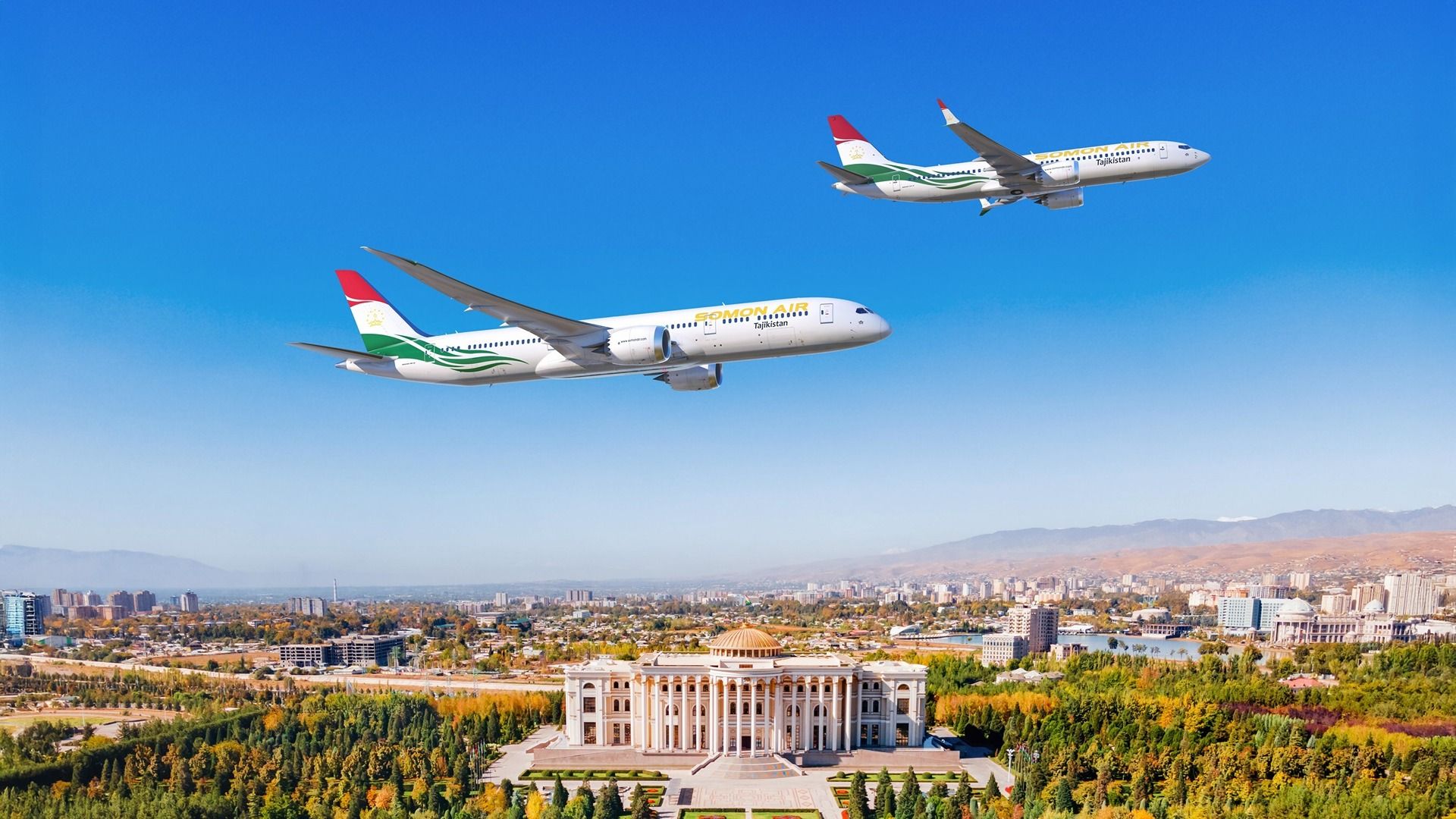World
Central Asia Airlines Commit to $7 Billion Boeing Aircraft Orders

The flag carriers of Uzbekistan and Tajikistan have made significant commitments to Boeing, securing orders that total approximately $7 billion. At the recent C5+1 Summit, marking the tenth anniversary of this diplomatic platform, Somon Air announced its largest aircraft order to date, which includes up to 14 Boeing 787 and 737 MAX aircraft. Meanwhile, Uzbekistan Airways is set to convert its options into a firm order for eight Boeing 787-9 jets, bringing its overall order to 22 aircraft.
These developments underscore a strong commitment to enhancing connectivity within Central Asia. The C5+1 Summit involves collaboration between the United States and five Central Asian nations: Kazakhstan, the Kyrgyz Republic, Tajikistan, Turkmenistan, and Uzbekistan.
Strategic Growth for Somon Air
Somon Air, the national carrier of Tajikistan, is poised to expand its fleet significantly. The airline’s order includes 12 Boeing 737 MAX 8 and four Boeing 787-9 aircraft, with deliveries expected to commence as early as 2026. Currently operating a fleet of eight aircraft, Somon Air aims to enhance its service offerings and replace older models, thus improving fuel efficiency by approximately 20 to 25%.
Abdulkosim Valiev, CEO of Somon Air, expressed enthusiasm about this investment, stating, “We are pleased to announce our commitment to expand our fleet with Boeing’s state-of-the-art 787 Dreamliner and 737 MAX airplanes.” He highlighted the flexibility in the order, allowing the airline to adapt its fleet based on market demand.
Somon Air initially signed a memorandum of understanding for the smaller 787-8 model during the 2018 Dubai Air Show, which did not materialize. However, this latest commitment reflects a renewed focus on long-haul capabilities and the introduction of new intercontinental services from Dushanbe International Airport.
Uzbekistan Airways Expands Long-Haul Operations
Uzbekistan Airways is also enhancing its fleet as part of its ambitious growth strategy. Founded in January 1922, the airline operates a network that stretches internationally, with services to destinations across Asia, Europe, and North America. Its current fleet consists of various aircraft, including nine Airbus A320-200 and six 787-8 Dreamliners.
The addition of 22 Boeing 787-9 aircraft will support Uzbekistan Airways’ goal of expanding its international routes while replacing older aircraft, like its six Boeing 767-300ER jets. Although the specific configuration for the new 787-9 aircraft has yet to be announced, it is anticipated that they will feature around 24-30 business class seats and up to 240 economy class seats, similar to the existing 787-8 model.
This strategic investment not only reinforces a strong partnership with Boeing but also aims to elevate the travel experience for passengers flying from Islam Karimov Tashkent International Airport.
The recent orders from both airlines illustrate a growing interest in modernizing fleets and enhancing connectivity in the region. As air travel continues to recover following the pandemic, the strategic commitments from Somon Air and Uzbekistan Airways signify a promising outlook for the aviation sector in Central Asia.
-

 Science3 months ago
Science3 months agoToyoake City Proposes Daily Two-Hour Smartphone Use Limit
-

 Health3 months ago
Health3 months agoB.C. Review Reveals Urgent Need for Rare-Disease Drug Reforms
-

 Top Stories3 months ago
Top Stories3 months agoPedestrian Fatally Injured in Esquimalt Collision on August 14
-

 Technology3 months ago
Technology3 months agoDark Adventure Game “Bye Sweet Carole” Set for October Release
-

 World3 months ago
World3 months agoJimmy Lai’s Defense Challenges Charges Under National Security Law
-

 Lifestyle3 months ago
Lifestyle3 months agoVictoria’s Pop-Up Shop Shines Light on B.C.’s Wolf Cull
-

 Technology3 months ago
Technology3 months agoKonami Revives Iconic Metal Gear Solid Delta Ahead of Release
-

 Technology3 months ago
Technology3 months agoApple Expands Self-Service Repair Program to Canada
-

 Technology3 months ago
Technology3 months agoSnapmaker U1 Color 3D Printer Redefines Speed and Sustainability
-

 Technology3 months ago
Technology3 months agoAION Folding Knife: Redefining EDC Design with Premium Materials
-

 Technology3 months ago
Technology3 months agoSolve Today’s Wordle Challenge: Hints and Answer for August 19
-

 Business3 months ago
Business3 months agoGordon Murray Automotive Unveils S1 LM and Le Mans GTR at Monterey









